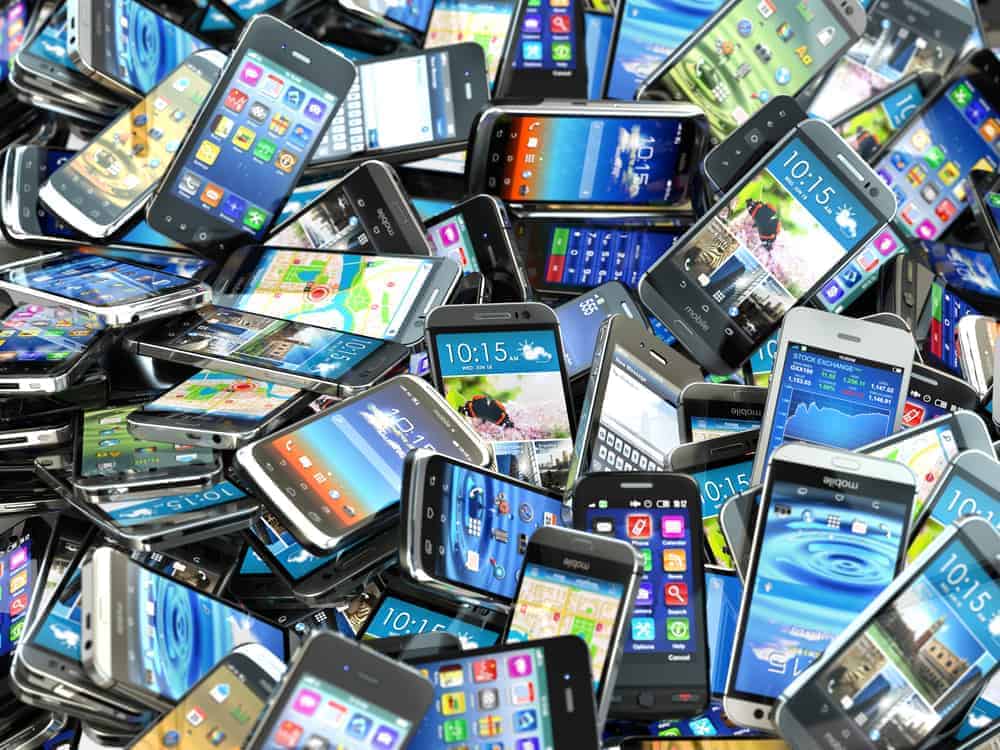Most people these days can’t imagine living without a smartphone. Your smartphone is your connection to the digital world, and frequently the physical world. Whether you want to share pictures with family, browse the web and social media, or run your business remotely, a smartphone is likely an essential part of the process.

The first smartphones emerged in 1992 and have since grown to become so commonplace you’d likely be perplexed to meet an American adult without one – 85% of adults in the U.S. own a smartphone, according to Pew Research, while 97% own some type of mobile phone. If you’re looking to buy your first smartphone or a replacement smartphone, ask yourself these questions to get started.
How do you plan to use your phone?
Start by asking yourself how you plan to use the smartphone. Some users have relatively light needs, like browsing the web and social media. Gamers and those who use their phone for multimedia or business purposes may need a more powerful device.
The four main specs (tech-speak for specifications) to look for when picking a phone are:
- Screen: The screen size dictates several aspects of usability. Some prefer a big screen with a bigger display. Others prefer something small and lightweight that slides into a pocket. Don’t just pay attention to screen size. Also, look at the resolution, which leads to image quality. Higher resolutions and refresh rates lead to better picture and video quality.
- Processor: The central processing unit (CPU) is the brain that powers your device and dictates how many processes it can handle per second. The smartphone processor market is complex, but in general, a processor with more cores and a higher processing speed, measured in gigahertz (GHz), is faster.
- RAM: RAM is short for Random Access Memory. RAM is an active type of storage that gives your phone the ability to do more simultaneously. If you’re a frequent app switcher and want a speedy experience, you’ll want a phone with lots of RAM. Gamers and heavy multimedia users may also benefit from more RAM.
- Storage: Your phone’s internal storage is equivalent to a hard drive on a laptop or desktop computer. More storage means you can hold more movies, songs, videos, games, and other files at the same time. Many phones offer expandable storage using MicroUSB, while others are fixed with the storage you get out of the box. While cloud storage gives you access to many of those files without gobbling up storage space on your phone, more storage is generally better.
Just like any other purchase, you often get what you pay for when picking a smartphone. The latest high-end phones are faster and do more than older phones with lower specs. But many people don’t need the best and fastest and can save a small fortune by picking a mid-tier device instead of the latest flagship phone. Your budget and planned phone use should guide your choice.
Are you brand or ecosystem loyal?
Some people treat Apple like religion and balk at the idea of buying an Android phone or anything made by Google, Microsoft, Amazon, or other tech brands. Others are entrenched with Amazon or Google devices around the house and prefer the convenience of owning devices from the same company that closely integrate and work together.
The two main operating systems for smartphones are Apple’s iOS and Google’s Android. iOS is found on iPhones and iPads. Android is installed on phones and tablets made by Google, Samsung, LG, Motorolla, and other manufacturers.
You may pay more for Apple iPhones, but they are typically very user-friendly and well supported. Android phones may cost less and offer more customization. Most people are best off with Apple or Android.
Do you want to be stuck with a specific carrier?
Last but certainly not least, what cell phone service provider do you plan to use to connect your device to the world? Verizon, AT&T, and T-Mobile dominate the market in the U.S., but don’t forget about potentially low-cost alternatives like Google Fi, Cricket, Republic Wireless, and Mint Mobile.
Unlocked phones give you the freedom to switch carriers whenever you want, but beware of early termination fees if under contract.
If you’re loyal to a particular phone company, you might be able to save money buying directly from that company. Getting an unlocked phone may cost a little more, but that’s the price of freedom to choose your phone provider at will.
Don’t overspend on the wrong phone

Photo: Deposit Photos
It’s easy to rush to buy the next brand-new phone the day it comes out, but most people don’t need to spend $1,000 or more every year on a new phone. I tend to buy the highest-end phone possible when it’s time to upgrade, but I also try to keep it for three full years to stretch my technology budget further.
Your smartphone strategy should be based on your budget and needs. When you ask yourself these three questions, you should be on track for your ideal smartphone. Just be sure not to drop it!
If you liked this article, you may also like:
